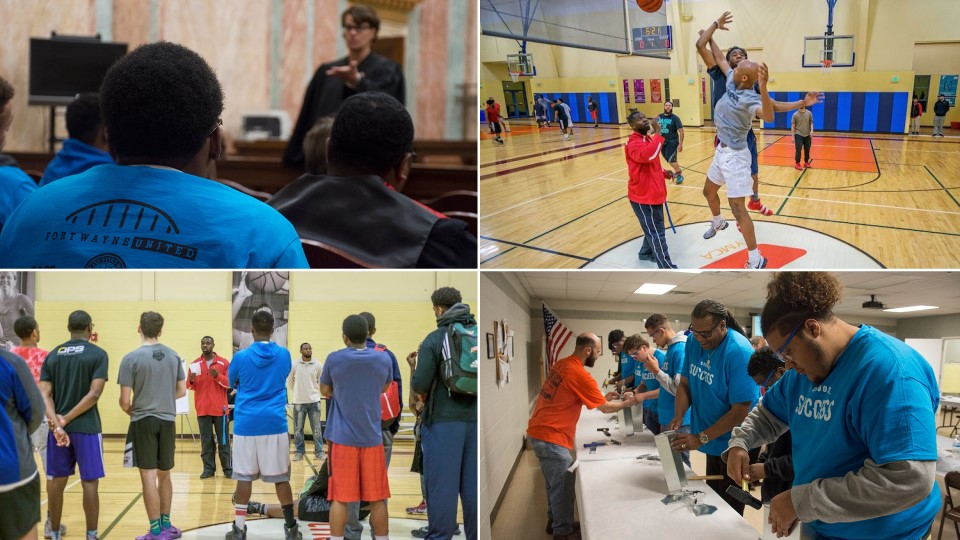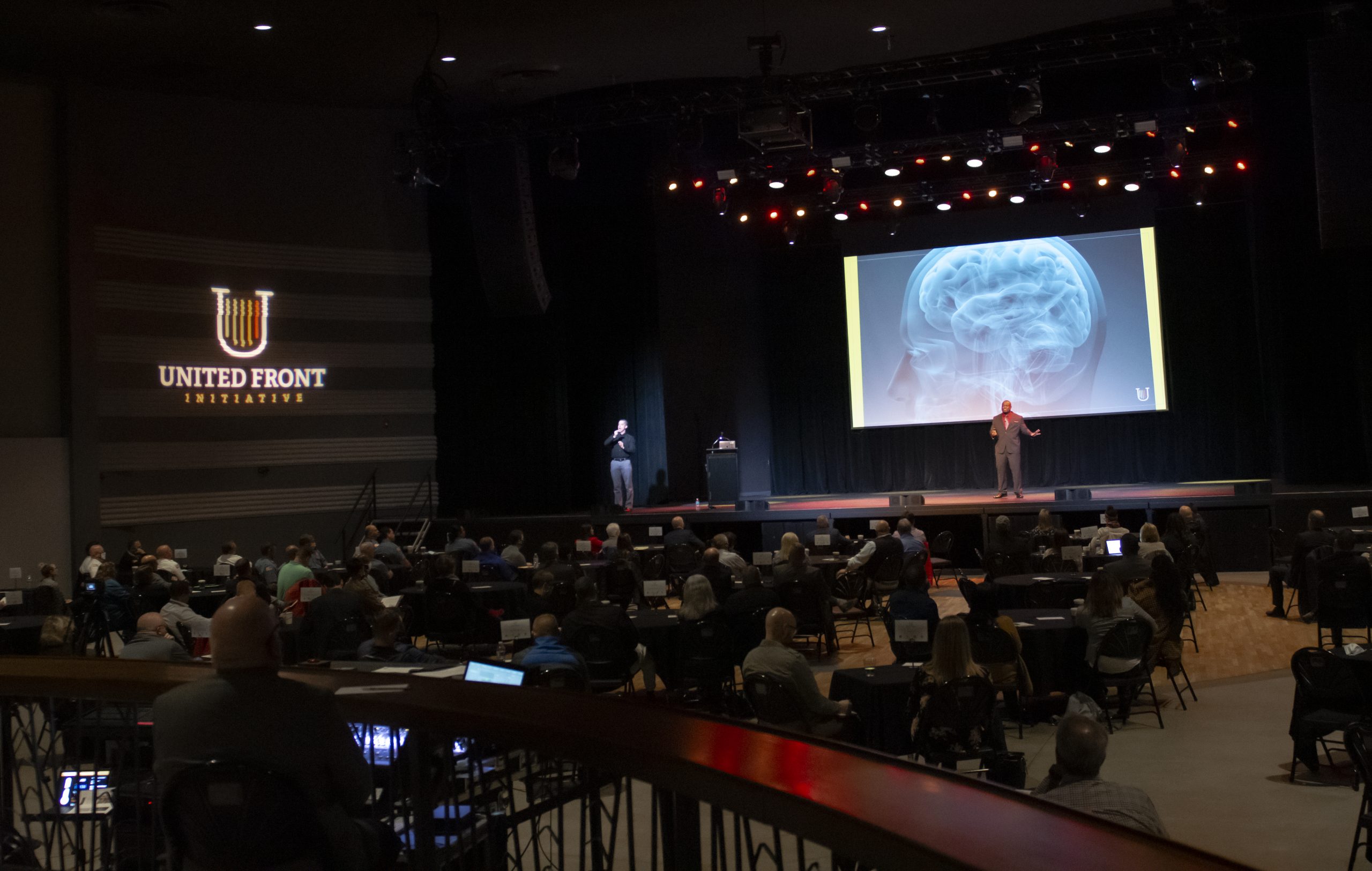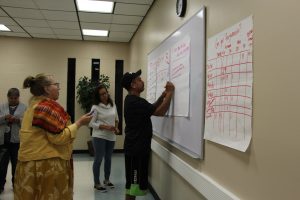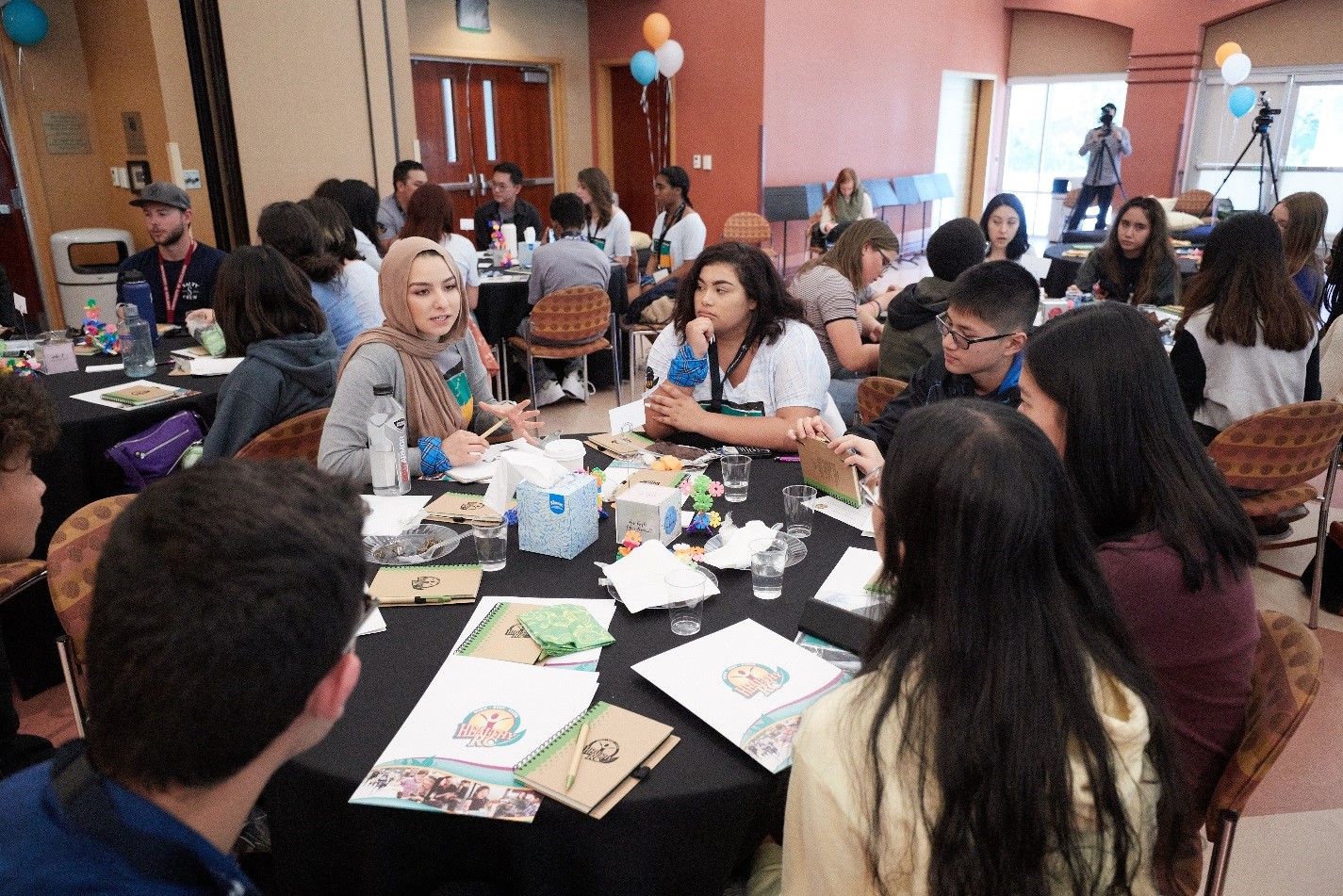By Cole Herrera
The past two years since the murder of George Floyd have been a challenging time for mayors, with calls for police reform mixed with voices wanting increased law enforcement. A group of mayors from All-America Cities convened by the Kettering Foundation earlier this year discussed these challenges, reflecting on how their cities, like many others, are using democratic practices to work with residents to improve both safety and accountability.
While little has been achieved at the federal level to combat police brutality and racial inequity, the opposite is true when it comes to local governments. Across the country cities and counties are working to improve racial equity and community-police collaboration on public safety, starting with the police stations in their own neighborhoods.
Though these challenges can feel like an uphill battle, they are clearly important: a poll conducted in May 2021 revealed that 69 percent of Americans think that racial justice is a problem in the country and 60 percent of participants became more concerned about racial injustice than they were in the year before. At the same time, 80 percent of Americans worry either a “great deal” or “fair amount” about crime.
In response to concerns about accountability, 33 of the 100 largest cities in the country have worked to implement some form of policing policy change since 2020. Many of these policing changes are simple, only going as far as banning chokeholds during confrontations, but some are more comprehensive, such as ending qualified immunity for officers or requiring officers to undergo psychological evaluations to ensure they do not hold racial biases.
To get a closer look at the way that mayors have worked with the members of their community to address challenges involving policing and equity, the National Civic League and Kettering Foundation brought together a dozen mayors for a learning exchange in February. Our hope was that, since all these mayors were from communities that have won the All-America City designation, we would see good examples of democratic practices at work, with elected officials working with residents to solve problems.
Below are three examples of cities represented at this forum in which mayors are working with community members to address racial equity and policing. As reflected in the book With the People, by former Kettering President David Mathews, these mayors have found that working collaboratively with residents is more successful than going it alone.
Fort Wayne, Indiana
Fort Wayne, a 2021 All-America City, has enjoyed many successes over the past decade and looks as though it will keep that momentum moving forward. After successfully revitalizing its downtown area to bring life back to this community, Mayor Tom Henry and city officials are working to address social inequalities and racial justice as the city grows more diverse year after year.
One program dedicated to that cause, Fort Wayne UNITED, is an effort to enhance opportunities and create a safer city for Black men and boys. This is done through several programs, including listening sessions and forums focused on fostering a healthy relationship between communities of color and the local police force. Another program introduced young men to skilled trade instructors, showing them a productive path forward while also giving them a glimpse into the criminal justice system, showing how poor decisions even at an early age could lead to poor outcomes.

A Fort Wayne UNITED initiative called “United Front” was rolled out during the high point of civil unrest to provide a safe place for cooperative and productive dialogue, where more than 8,000 people enrolled in a year-long cultural competency curriculum meant to set the stage for how racial healing and unity can be managed moving forward. This curriculum was delivered through a range of recorded sessions and workshops, with topics ranging from implicit bias and microaggressions to understanding the essence of belonging. In the next phase, residents can take an intensive 3-month training for Diversity, Equity, Inclusion, and Belonging (DEIB) to become a DEIB lead qualified to assess their own organization and build a DEIB strategy that they can bring to their own workplace.

Mayor Henry announced the “Moving Forward Together” Action plan shortly after the murder of George Floyd. As part of this plan, a social justice and police reform commission was established consisting of social workers, community leaders, police officers, and ministers who met twice per month for a year. This commission was tasked with discussing social inequalities in the city and addressing how the police force in Fort Wayne could be changed to best support new social justice initiatives, and eventually the commission agreed upon and submitted more than 40 recommendations to the mayor and police chief, all of which were readily accepted. These recommendations were focused on three major areas: race relations, communication, and departmental transparency.
As part of these recommendations, the Fort Wayne Police Department has chosen a path of reconciliation with a desire to ease tensions between itself and the community. This reconciliation has taken the form of facilitated discussions with community members and should create a new space for understanding and cooperation. Additionally, trainings for officers have been implemented, such as diversity and implicit bias trainings and procedural justice. To further show commitment to the cause of racial healing, commission leaders continue to meet every few months to keep city leaders accountable. Mayor Henry remains committed to this cause and the work of the commission, understanding that inequality will likely be an ongoing challenge to be addressed.
Rancho Cucamonga, California
In Rancho Cucamonga, Mayor L. Dennis Michael and his city council colleagues have worked to integrate community engagement and productive dialogue into many of the city’s processes, implementing community policing, and establishing a culture where citizens are engaged to provide input on topics ranging from the general plan update to infrastructure and capital project improvements to disaster and resiliency plans.
 In order to promote more positive mental health outcomes for citizens, this 2020 All-America City has adopted a health-in-all-policies culture, driven by a city-community partnership called Healthy RC. Healthy RC has been a major contributor in the city’s fight against racial inequity, taking civic engagement opportunities to underrepresented residents. One of the many impactful programs under the Healthy RC umbrella is the “Campeones para la Comunidad (Community Champions),” a community group focused on providing leadership training and fostering civic engagement opportunities for Latino residents. The Campeones para la Comunidad have met every two weeks at a community center since 2010, and they have helped teach participants about how to engage with local government in a productive manner that results in real policy change. Ultimately, the goal of this group is to give a voice to Latino residents, who have been historically underrepresented in government processes and policy decisions.
In order to promote more positive mental health outcomes for citizens, this 2020 All-America City has adopted a health-in-all-policies culture, driven by a city-community partnership called Healthy RC. Healthy RC has been a major contributor in the city’s fight against racial inequity, taking civic engagement opportunities to underrepresented residents. One of the many impactful programs under the Healthy RC umbrella is the “Campeones para la Comunidad (Community Champions),” a community group focused on providing leadership training and fostering civic engagement opportunities for Latino residents. The Campeones para la Comunidad have met every two weeks at a community center since 2010, and they have helped teach participants about how to engage with local government in a productive manner that results in real policy change. Ultimately, the goal of this group is to give a voice to Latino residents, who have been historically underrepresented in government processes and policy decisions.
Healthy RC has a number of other successful programs including a Mental Health Subcommittee that has steered the effort to improve community access to culturally appropriate mental health resources and remove the stigma associated with mental health concerns. The subcommittee has annually hosted a series of free, family-friendly and culturally appropriate mental health community symposiums that offer resources to remove the barriers from financial and other stigmas, to access mental health services. In partnership with the city’s Healthy RC Youth Leaders, these groups held weekly symposiums where local youths were exposed to techniques to help improve mental health. Healthy RC, as part of a broader Community Mental Health Task Force, also supported local school districts in providing suicide prevention workshops to the community, showing dedication to harm prevention. 
Regarding community policing, police in Rancho Cucamonga are also a part of the Community Mental Health Task Force, meeting monthly with city partners, school principals, counselors, and mental health and suicide prevention experts to ensure students have the knowledge and resources to ask for and receive help. Separately, the police chief and lieutenants join in the quarterly school superintendents (there are 5 districts in Rancho Cucamonga) meetings hosted by the city to ensure strong relationships and communication between the different entities and the city. The city has six dedicated school resource officers (funded through a schools-city partnership), who are specifically selected and trained for this assignment, throughout the community’s 30+ school campuses, further building a strong relationship between the department and younger residents.
The police department’s engagement extends beyond the schools as well. The chief hosts a monthly gathering with community members to address any safety concerns. The department makes an intentional effort to meet the community where they are at using events such as Coffee with a Cop and Pizza with Police. This has resulted in fewer instances of crime and accusations of police brutality, facilitated successful interventions and resource deployments, and has strengthened police-community relationships and collaborations. Additionally, the police department focuses community efforts on the city and larger area’s unhoused population. The Homeless Outreach and Proactive Enforcement (H.O.P.E.) program is focused on meeting with local people experiencing homelessness and connecting them with resources to help them transition out of homelessness.
Hayward, California
Hayward Mayor Barbara Halliday has been focused on countering regressive federal-level policies with a strong community focus on inclusivity and police reform. Hayward residents, a large percentage of which are Latino, were concerned following the 2017 federal actions surrounding immigration. This concern encouraged them to come together and create a community-led committee, resulting in a report on all the ways they wanted to see Hayward support its values of inclusivity, equity, and compassion.
A main goal included in the city’s equity report was to improve relations between the community and police, which led to the creation of an advisory board of residents with first-hand experiences with the police. This board was intended to advise the chief of police, but some felt that little progress was made in mending the relationship between the community and police.
In 2020, with the murder of George Floyd, tensions grew even further which prompted Hayward city staff to release a survey to community members and a comprehensive community engagement process with the intent of gathering information about the community’s experiences with the police. Following this survey, a policy innovation working group was created, which included a wider array of Hayward residents and city staff. The working group developed recommendations for new policy changes for the Hayward police department, primarily concerning mental health response and policing. Because of these new policy changes, Hayward has made strides in how they handle mental health issues and have established police reforms to reflect this new strategy.
This year, the city is set to establish mobile mental health crisis teams of unarmed mental health professionals partnered with specially-trained police officers and community paramedics. These professionals will respond to certain emergency calls instead of regular officers, and emergency dispatchers will undergo additional training to better understand which kind of emergencies will require this special team.
Hayward has a history of initiatives that promote caring and inclusivity. A great example of this is some of the work that helped Hayward win an All-America City award in 2016. Hayward was recently recognized as the most diverse city in America and has a significantly lower median income than the surrounding cities. This discrepancy is especially highlighted in South Hayward, where residents have faced linguistic, cultural, and economic barriers to education, healthcare, and mental health services just to name a few.
To reduce these economic disparities, the City of Hayward created a strategy for neighborhood revitalization and education. The strategy included development of well-lit and safe routes to school and neighborhood destinations where residents could comfortably walk or ride their bikes.
The community also took a multigenerational approach to fighting poverty, which included educational programs aimed at students as well as their parents. These programs helped with career development and financial training. The city ensured that resident voices were heard throughout this process, hosting meetings across three dozen neighborhoods over 130 meetings, each of which had 25-50 participants on average.
Conclusion
While these three cities and their mayors are attempting to tackle police reform and racial inequality, there is a wide array of strategies that cities have used nationwide. A common quality among the cities discussed above is a focus on community engagement and an effort to bring in diverse voices that typically aren’t heard, especially in government settings. This focus serves to reinforce the value that civic engagement and active community dialogue can bring to difficult situations, and hopefully these techniques will continue to spread to even more cities.
It is unlikely that our country’s difficulties with inequality will go away anytime soon, but as long as different people can be brought together to work with local governments to address important challenges, we will be able to find new solutions and may even create a better community along the way.
Cole Herrera is a Robert Rawson Fellow with the National Civic League and a candidate for a Master’s Degree in Public Policy and Administration at Colorado State University.



